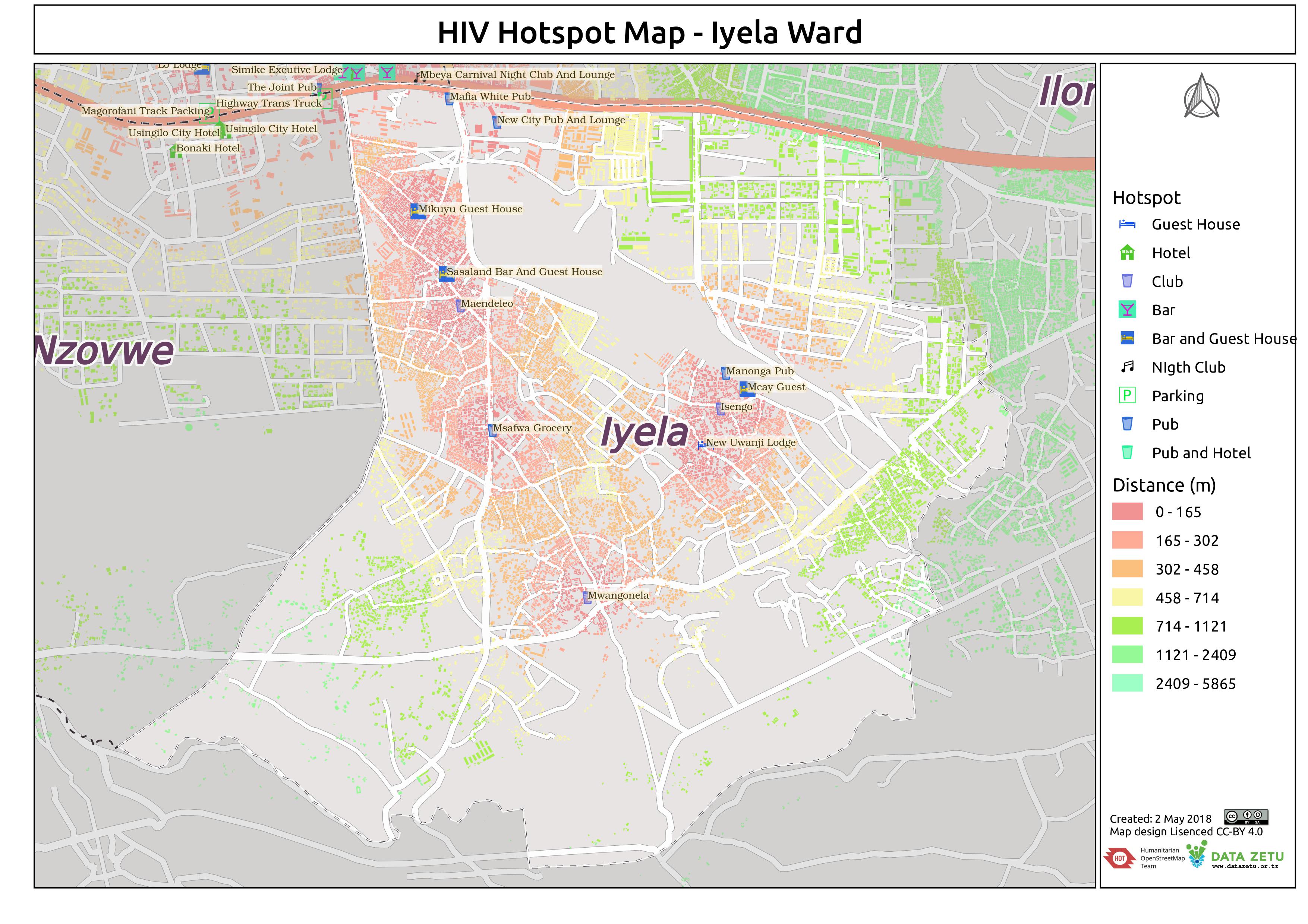Kihumbe- Survey Digitization and Mapping for HIV Monitoring
Download page as PDFKihumbe NGO (Mbeya, Tanzania)
The Challenge
KIHUMBE, a non-profit NGO based in the southern highlights of Tanzania, provides HIV-related services and counselling to at-risk individuals from vulnerable populations. Prior to HOT’s intervention, KIHUMBE used local paper-based methods to conduct data collection and generate daily reports of people receiving services. Data availability and data access was a common challenge for staff. Peer educators—a group of KIHUMBE volunteers who conduct citizen outreach in areas with high HIV prevalence—needed updated data showing where “hotspots” (areas like motels or nightclubs where HIV is at higher risk of transmission) are in a given neighbourhood. For years, KIHUMBE provided its peer educators with a directory listing the names and locations of known hotspots that they would use to visit these locations or find people at risk of contracting sexually transmitted diseases. This approach was problematic for a number of reasons; it did not easily track daily progress of their peer educator volunteers or how many at-risk individuals were being reached, and there was no mechanism for this data to feed into a central database highlighting the changes in names, locations and level of risk associated with each hot spot.
The Approach
Once HOT learned about KIHUMBE’s challenges with generating and maintaining its own datasets, a tailored training program was developed for staff to develop capacity to use OpenDataKit (ODK) Collect to create and deploy mobile surveys, use the KoboToolbox server to monitor incoming responses and use QGIS to generate hotspot maps showing where HIV transmission may be highest. The most effective way to encourage institutional ownership over activities is to train specific individuals on the tools that will benefit them most in the work they already do. The M&E Officer, who focused on the organization’s impact data, learned how to build surveys for mobile data collection in Excel to digitize his prior work. Peer educators, who would use the hotspot maps to conduct outreach, were trained on using ODK to collect data and deployed to conduct data collection in their assigned communities. The adoption of free tools made the project implementation simple as there were no costs associated with KIHUMBE staff learning to use new tools.
The Results
Creation and use of hotspot maps enabled KIHUMBE to be more strategic about where peer educators are stationed - places with the highest concentration of hotspots - on a weekly basis to conduct outreach. Free tools, such as ODK Collect and Kobo Toolbox, also enabled KIHUMBE to more easily conduct daily and weekly reporting about their activities which, in turn, has helped to allocate staff and financial support more strategically to where it is needed most.
